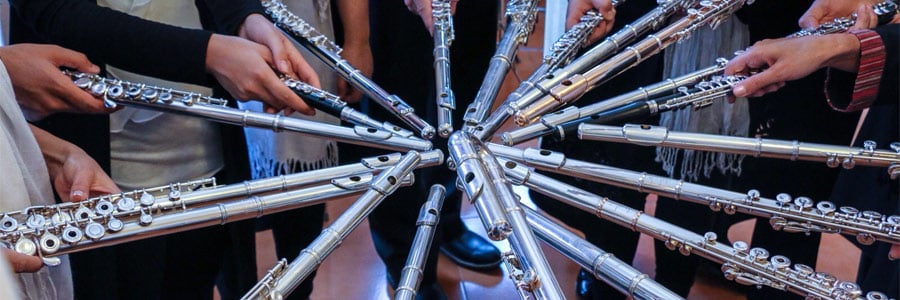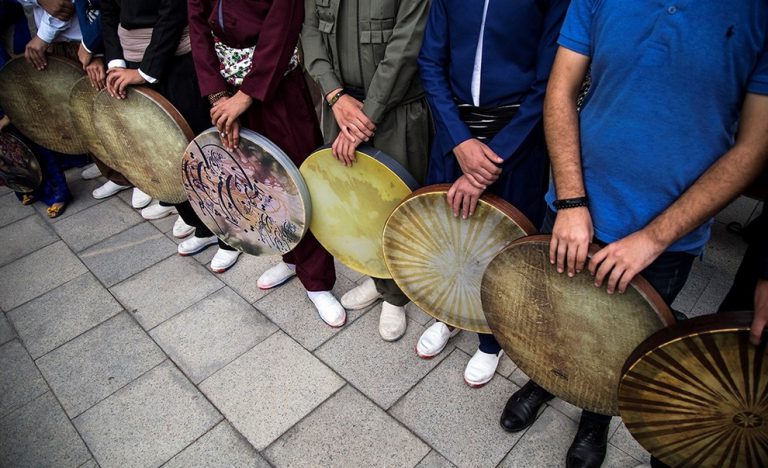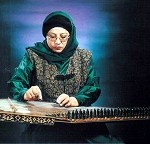
Translated by Mahboube Khalvati
Tehran Flute Choir is a 40-member orchestra of Iran’s best flutists; Iran’s best flutists? Yes! If you write down the names of the greatest Iranian flute players who participate at concerts and contribute to academic centers in Iran, you will see that most of them are among the choir’s members.
So, what makes Tehran Flute Choir’s eight-year activity exceptional? It needs some familiarity with the Iranian “orchestra culture” to be able to understand that the founders of Tehran Flute Choir, Firouzeh Navai and Saeed Taghadosi, have done an exceptionally great job in keeping this orchestra going. A choir consisting of the best Iranian flutists who not only work together very well through the choirs’ demanding disciplines (without letting personal and professional disagreements to interrupt their collaboration) but also serve as sponsors to ensure the continued work of the team. Well, these conditions might not only seem illogical and unappealing to Iranian musicians but also to musicians from materially and spiritually richer countries. But, Tehran Flute Choir is an exception!
Eight years ago, two international artists, Firouzeh Navai and her husband, Saeed Taghadosi, who had the experience of teaching and playing flute in European choirs as well as conducting them, approached me with the idea of establishing a flute choir. I considered it impossible unless pre-requisites such as recruiting flutists younger than twenty years of age with little experience, specified finances, etc. were met.
However, the presence of three people who were really the embodiment of humanity and commitment to the art of music changed the story in a different way; Dr. Azin Movahed, the founder of the Iranian Flute Association (a maestro, an experienced and successful professor of flute and classical music theory, and of course a national figure who is well respected by Iran lovers), together with Saeed Taghodsi and Firouze Navai, with a profound knowledge of music and exemplary humbleness gathered together a group of Iranian flutists and established a flute choir of which the Iranian classical music society is rightly proud.
Firouzeh Navai, who was offering a master-class for flutists, taught me a very beautiful lesson in the first meeting of Tehran Flute Choir; “if no one is interested in playing the bass flute, I will do it. Otherwise, I will offer refreshments to you during rehearsals; after all, you need someone to serve you and to clean the rehearsal hall …”, Navai humbly said. These remarks were in no way Ta’arof but a characteristic which the choir’s veteran musicians have.
This year, Tehran Flute Choir celebrated its 8th birthday with a record of important domestic and international performances. Tehran Flute Choir proved that one can dearly love music and cherish humanity while remaining professional.








